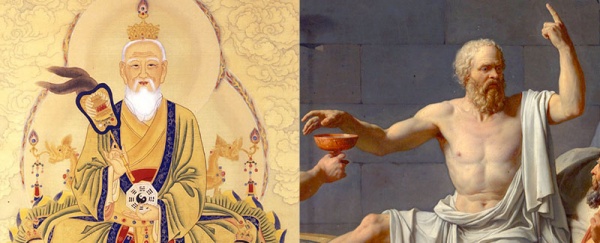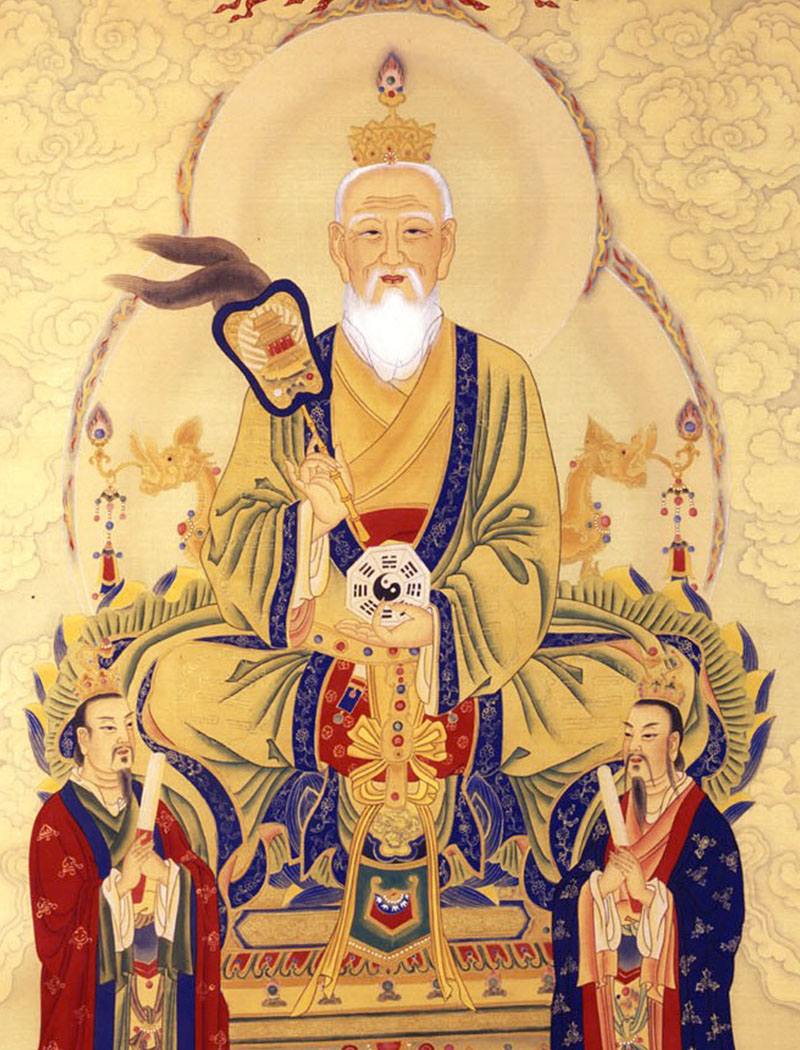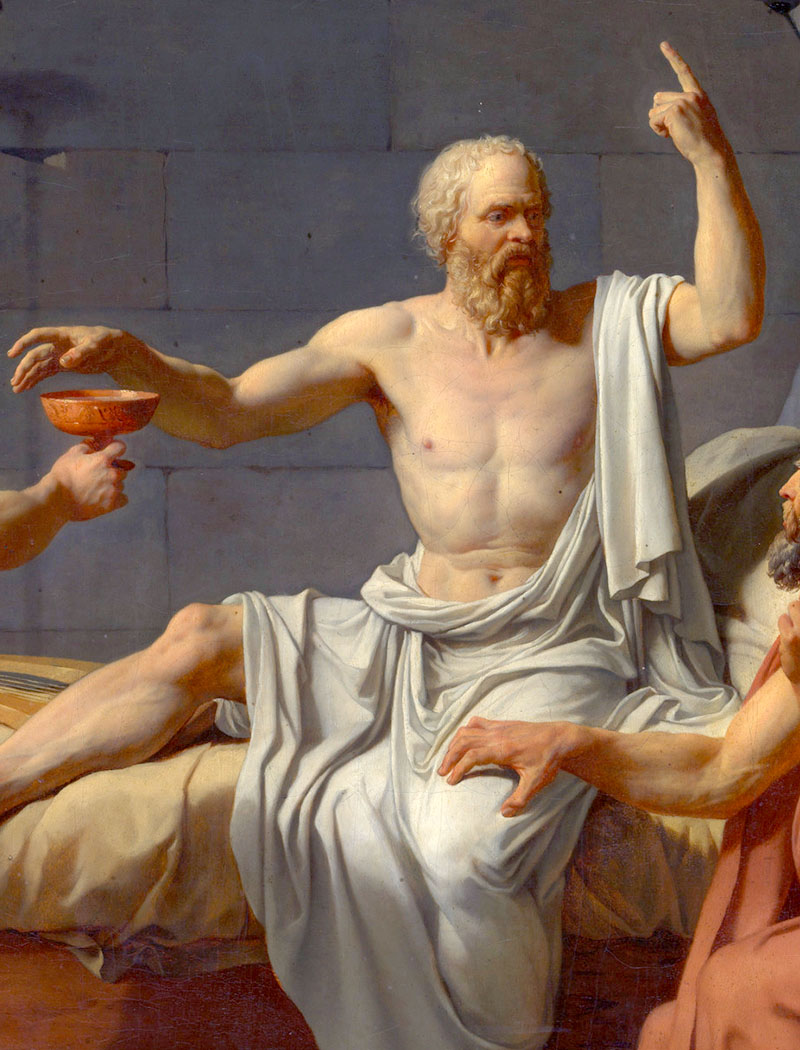In this series we look at historical figures from China’s past who have intriguing Western parallels.
Imagine how well Socrates and Laozi (often written Lao-Tzu) would get along if they had met? Language barriers aside, what might they talk about?
Now, these two highly esteemed sages were people of great wisdom, so their words carried layers of meaning. But in the spirit of good fun, we borrowed some of their well-known quotes to set up an imaginary conversation in an ancient Sino-Greco outdoor marketplace.
Each expresses his thoughts as he observes the hustle and bustle of the mortal world. Note how alike their views on some subjects seem to be. Of course, when Laozi and Socrates spoke some 2,500 years ago, their circumstances and intended audience were not the same. So keeping that in mind… enjoy!
* * *
Seeing people make their way from shop to shop carrying their purchases, Socrates notes, “He is rich who is content with the least. For contentment is the wealth of nature.”
Stroking his long white beard and nodding in agreement, Laozi responds, “He who is contented is rich.”
Amid the racket of vendors calling out to advertise their goods, Socrates says with a smile, “Silence is a profound melody for those who can hear it above all the noise.”
“When there is silence, one finds the anchor of the universe within oneself,” Laozi concurs.
“Know thyself,” Socrates adds.
“Knowing others is to be clever,” says Laozi. “Knowing yourself is to be enlightened.”
A nobleman passing by overhears their conversation, and realizes the two are men of wisdom. Despite his wealth, the nobleman is often engulfed by sadness. He tries to make himself happy by buying things. Yet, the happiness procured is ephemeral. He approaches the pair and asks for the secret to true happiness.
Sighing, Laozi tells him, “If your happiness depends on money, you will never be happy with yourself.”
Socrates consoles the nobleman and explains, “The secret of happiness, you see, is not found in seeking more, but in developing the capacity to enjoy less.”
The man is stunned by the simple revelation, and his outlook on life is completely altered. He thanks the two and continues on his way, deep in thought…
* * *
Laozi and Socrates, often considered the fathers of Eastern and Western philosophies respectively, spoke of truths that are universal. And the similarities between their teachings are fascinating and worth contemplating. They even seemed to agree on not knowing:
Laozi: “To realize that you do not understand is a virtue; not to realize that you do not understand is a defect.”
Socrates: “The only true wisdom is in knowing you know nothing.”
Humble as they were, there is so much we can learn from them. These sages of antiquity focused their attention inward. They cultivated their hearts and obtained self-mastery through overcoming fears and desires.
As they explained:
Laozi: “Manifest plainness, embrace simplicity, reduce selfishness, have few desires.”
Socrates: “The fewer our wants the more we resemble the Gods.”
Perhaps the next time you find yourself in a conflict with someone, try turning your attention from outward to inward. Instead of finding fault in them, try to find fault in yourself. Dare to give it a go? If you do, you may have just taken your first step to becoming a sage!
* * *
With the Zhou Dynasty in decline, some time around the fourth century B.C.E., Laozi decided to make his departure and rode off to the West, never to be seen again. But before he did, he wrote 5,000 words of wisdom, the Tao Te Ching, and left it to his future disciples to study and apply.
About the same time, in 399 B.C.E., Socrates was convicted of impiety against the Athenian pantheon and of “corrupting the youth.” He was forced to kill himself by drinking a bowl of poison. Socrates stood by the truths that he taught over his lifetime, leaving a final lesson to his disciples.
“I cannot teach anybody anything. I can only make them think,” said Socrates.
“He who knows does not speak. He who speaks does not know,” said Laozi.






